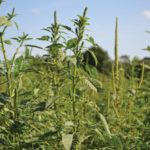Researchers at the Agriculture and Agri-Food Canada (AAFC) research centre in Saskatoon are developing molecular diagnostic assays to detect significant pathogens associated with crops and livestock production. Biological assays are […] Read more
1.









